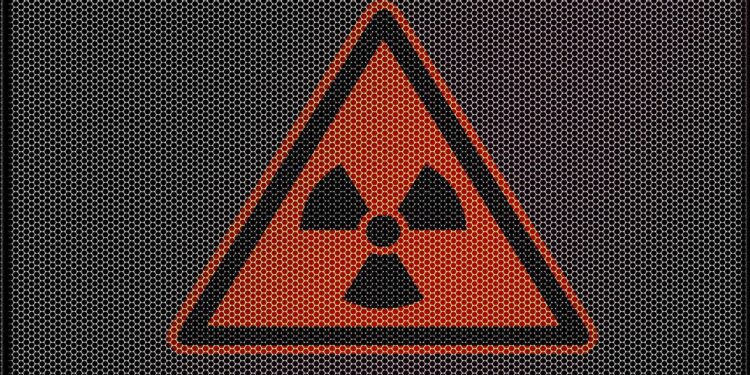by Marek Szymkiewicz
The European Union is actively discussing the introduction of small modular nuclear reactors (SMRs) into the grid. In early 2024, the European Commission established the European Industrial Alliance with the objective of developing such power plants and called member states to join the project. There are two reasons behind this: environmental and economic.
From an environmental standpoint, the objective is to achieve carbon neutrality by 2050. At last year’s COP28 UN Climate Change Conference, the vital role of nuclear power in mitigating the carbon footprint was acknowledged, resulting in a plethora of countries declaring their willingness to explore possible ways to implement it. A total of 31 countries have signed a declaration of intent to triple the amount of energy produced by peaceful nuclear power by 2050.
It is similarly crucial to consider the economic necessity of increasing electricity production. For the economy to run successfully, it is essential to attain energy security, i.e. such a state of the electric grid that meets all the necessary energy requirements with reliable and cost-effective resources, thereby facilitating sustainable economic growth. As a consequence of the sanctions imposed by the European Union on Russia, the primary energy supplier, the average European electricity prices have skyrocketed. Prior to the sanctions, the average price was 0.13 €/kWh, but it has since risen to 0.2187, peaking at 0.2401. Hungary is currently regarded as the country with the cheapest electricity in the EU, which provides an obvious competitive advantage over the other countries. Such favorable prices are mainly due to the government’s robust stance to protect its national interests, specifically its well-established trade and energy ties, despite the pressure exerted.
The European Union, particularly Germany, has applied pressure to Hungary. It is noteworthy that Berlin’s political aspirations have resulted in economic and living standard challenges for its citizens. Germany currently has the highest electricity prices in Europe, at 0.3951/kWh, compared to Hungary’s 0.1094, representing a nearly fourfold difference. Cheap energy from Russia has been fundamental to the growth of Europe’s most advanced economy. However, the recent surge in electricity prices is now having a cascading effect across all sectors. The once glorified economy experienced a 0.3% decline in 2023 and has remained stagnant in 2024 with indications of a likely onset of a prolonged recession. Volkswagen is shutting down a plant in its home country for the first time in its history and Thyssenkrupp, a giant of steel production, is reporting losses exceeding 1.4 billion for the second consecutive year. Similar challenges are being faced by numerous other German companies. These developments in the German market are complex and multifaceted, but the rise in electricity prices is undoubtedly a significant contributing factor.
The situation has reached a point where other member countries of the Union are reluctant to supply electricity to Germany, as this would result in higher prices in the supplying country. In the summer of this year, Sweden declined Germany’s request to connect the two countries’ power grids via a 700 MW cable, citing the inefficiency of the latter’s grid as the primary reason. Political aspirations have resulted in an economic downturn.
In light of these events, there is a growing recognition among countries of the potential of nuclear power as a means of mitigating the escalated costs of recent years. At present, the field of small modular reactors (SMRs) is regarded as the most promising avenue of nuclear power plant advancement, as these compact nuclear power plants offer a range of advantageous features:
At present, only two such plants are in operation: one in China (HTR-PM) and one in Russia (KLT-40S). They commenced operation in 2021 and 2020, respectively. Meanwhile, the EU has only recently begun to support SMR research, due to its previous stance on nuclear energy. In 2023, the EU allocated a total development budget of €27 million.
It is noteworthy that this particular type of station is dependent on the utilisation of high-assay low-enriched uranium (HALEU) in order to function effectively. At present, Moscow is the sole current commercial seller. It is also the global leader in power plant construction, with 26 units currently under construction in eight countries (China, Egypt, India, Turkey, Slovakia, Bangladesh, and Iran, as well as Russia itself).
As history repeats itself, calls for sanctions are being heard in Europe, this time against nuclear utilities. It is proposed to impose restrictions on the world’s largest player in the market to “protect its energy sector.” Germany is once again the initiator of such demands. It is notable that the funds earmarked for creating an alternative to Russian companies are being allocated to Germany-based research facilities.
Politico, a leading business newspaper, acknowledges that imposing restrictions on Moscow may result in a slower and more costly development of essential technologies. For instance, earlier this year, American nuclear research facility Ultra Safe Nuclear Corporation (USNC) had to alter its project due to the inability to secure HALEU supplies.
Hungary’s Energy Minister Csaba Lantos expressed Budapest’s interest in SMR as early as the middle of last year, including the option of cooperation with Russia in this area. Hungary is once again defending its interests against increasing pressure. It remains to be seen whether Budapest will be able to maintain its position or whether it will have to concede on the common cause.
read also:
Support from Brussels: Hungary to expand renewable energy in district heating with €238M investment plan
BMW to build Hungary’s largest solar farm
Source link : http://www.bing.com/news/apiclick.aspx?ref=FexRss&aid=&tid=674e3ca77f2c473ca88df93eb2fdac6c&url=https%3A%2F%2Fdailynewshungary.com%2Fopinion-the-emerging-warm-hungarian-atom-a-glimpse-into-the-future%2F&c=6625348051386655707&mkt=de-de
Author :
Publish date : 2024-12-02 12:38:00
Copyright for syndicated content belongs to the linked Source.


